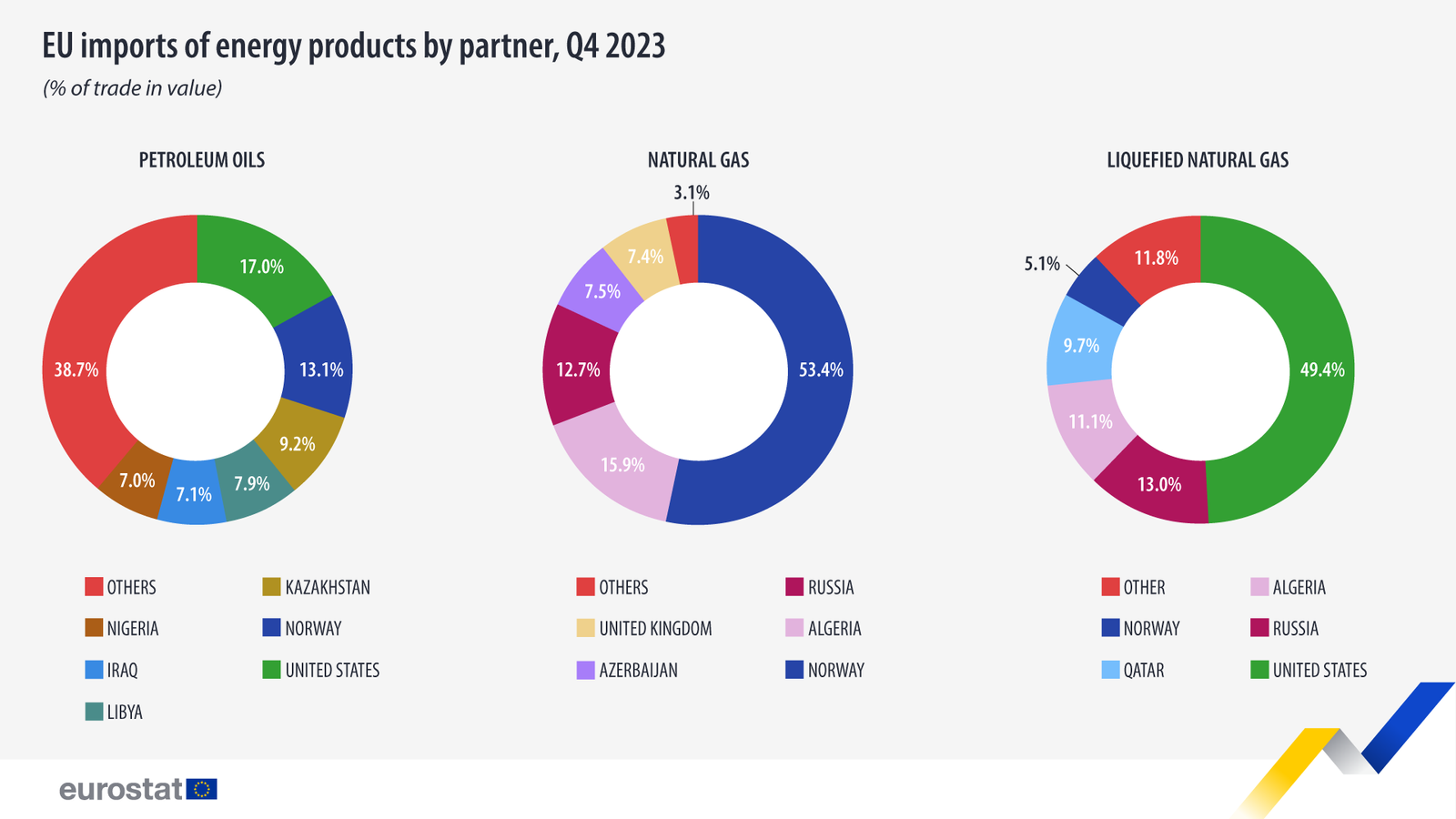In the fourth quarter of 2023, the European Union (EU) experienced a significant decline in the importation of energy products, as reported by Eurostat.
In the fourth quarter of 2023, the European Union (EU) experienced a significant decline in the importation of energy products, as reported by Eurostat. The EU imported energy products worth €111.3 billion, totaling 187.9 million tonnes. This marked a notable decrease compared to the same period in 2022, with imports decreasing in both value and net mass by 34.2% and 11.7%, respectively.
When comparing the entire year of 2023 with 2022, the decline in energy imports persisted. The value of energy products dropped by 35.0%, while the volume saw a decrease of 9.4%. This reduction in import value was primarily attributed to declining prices across various energy sectors.
In particular, the importation of natural gas experienced a significant downturn in 2023. The value of imported natural gas decreased by 52.2% compared to 2022, accompanied by a volume decrease of 16.1%. This decline followed a price surge in 2022, during which a remarkable 200.4% increase in value was recorded alongside a marginal 0.7% decrease in imported volume.
The decrease in natural gas imports should be understood within the context of the EU’s reduction plan aimed at cutting gas consumption by at least 15%. Initially covering the period from August 1, 2022, to March 31, 2023, this plan was extended to March 31, 2024.
Moreover, the decline in petroleum oils prices also contributed to the overall decrease in energy imports in 2023. Petroleum oils experienced a 17.2% decrease in import value alongside a 2.8% decrease in volume. Similar to natural gas, petroleum oils saw a surge in prices in 2022, with the EU importing 71.2% more in value and experiencing a 7.7% increase in volume compared to 2021.
Key energy suppliers to the EU in the fourth quarter of 2023 included Norway and the United States. The majority of the EU’s imports of petroleum oils came from the United States (17.0%), followed by Norway (13.1%) and Kazakhstan (9.2%). Norway also stood out as a significant supplier of natural gas, providing more than half (53.4%) of the natural gas in gaseous state imported by the EU. Algeria followed with 15.9%, ahead of Russia (12.7%).
In terms of liquified natural gas (LNG), the United States was the leading supplier, providing almost half (49.4%) of the imported LNG, followed by Russia (13.0%) and Algeria (11.1%).
The data on EU imports of energy products by partner in the fourth quarter of 2023 indicates the dominance of certain countries in supplying energy to the EU, highlighting the importance of international trade relationships in meeting the EU’s energy needs.
Energy products referred to in this article include petroleum oils, natural gas, and solid fuels, including coal, lignite, peat, and coke, as classified by the Combined Nomenclature (CN). The specific product codes are provided for clarity.
